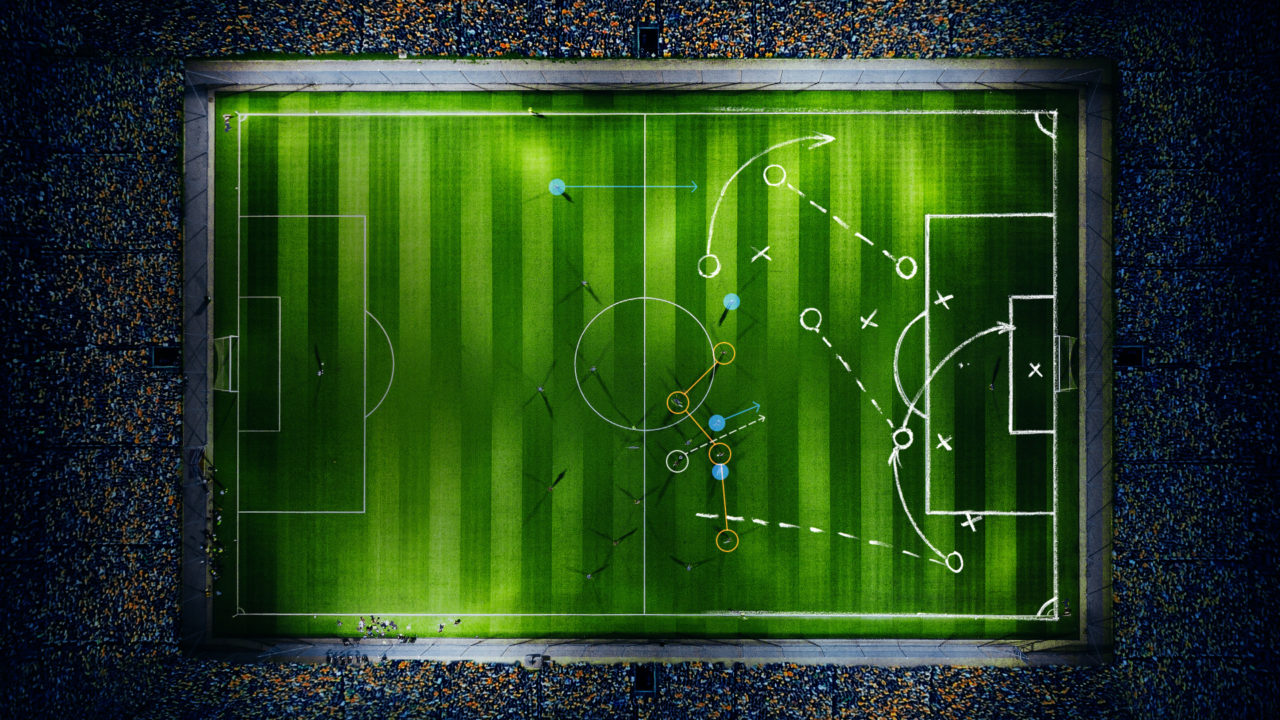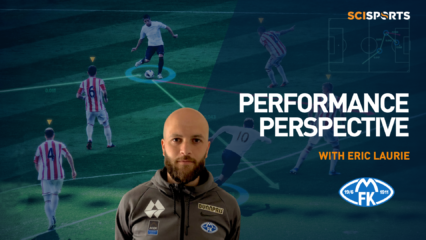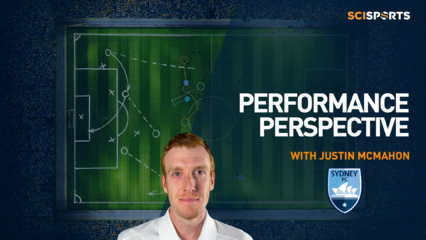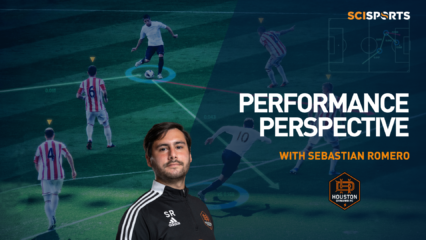
Youri Mulder is a retired Dutch football player, who played for FC Twente and Schalke 04 and collected 9 caps for the Dutch national football team. After his playing career he was employed in several coaching positions at Twente and Schalke. Currently he can be seen on Dutch TV, where he provides commentary and analyses for the NOS. SciSports sat and talked with him about his time as a football player and his vision on the use of data intelligence, science and statistics in football.
Mulder’s playing career largely took place during the nineties, when the use of statistics in football was just starting out. However, the 46-year old Mulder explains, science and technology was already used during his career. “In Germany, they did a lot of physical tests. We had a nutritionist and we used video footage, although there was no analysis done.”
Although the current generation was raised among the newest technology and gadgets, Mulder doesn’t believe today’s players are more receptive to the use of statistics and science. “When I was still active, players of course were interested in their development as a footballer. But back then, we didn’t have all the possibilities players have now. And what we did have was far from accurate, so players were reluctant to using it.”
“I believe defenders are normally more open to using statistics than attackers. Attackers are more intuitive and I think the more intuitive a player is, the less open he is to using statistics in his playing style. Defending is more about paying attention and being careful, so you want more information to complement that.”
Applying data
According to Mulder, the challenge with data lies in the way it’s applied. “Coaches have to know how to deal with data, know what is important for him and his team.” Mulder warns for overloading players with data. “Look at Manchester United. The players look cramped, ik thin that is because they have to think too much, they have too much information. Knowing two key elements about your opponent is enough, so it’s important that as a coach you extract the valuable pieces from the bulk.”
One of the earliest applications of statistics in football was the database of penalty takers. “We actually won the UEFA Cup in 1997 because of such a database. Jens Lehmann, our keeper, chose the correct corner against Ivan Zamorano and Aron Winter in the final against Inter Milan. Our trainer at the time, Huub Stevens, maintained a whole database. He said, ‘if you see a penalty somewhere, tell me about it.”
Mulder says there is a difference between data and data intelligence. “Just plain data means nothing, it’s about the interpretation of the data. It’s up to us to make the distinction between numbers and ask ourselves ‘so what does this mean?’ Numbers will never take over the job of a coach or an analyst.”
As a new generation of analysts using statistics is emerging, Mulder acknowledges the need to keep up with the latest developments. But for him, it’s not a burden. “I like to know all the numbers, because you know people can and will judge you on what you say. If I claim that Ajax always plays on the opponent’s half, I need to know if that’s true or if I’m talking rubbish.”
The future of football
Football is often criticized for being too conservative, both in adapting new technologies and rules and in clubs using science and data. Mulder agrees, but says there is more behind it than meets the eye. “First of all, it’s quite hard to use data in a sport like football, which is one of the most open sports in the world. It has no stop-and-go dynamics, like baseball. Every situation is different, so to translate that into usable data intelligence is a huge challenge.”
“Secondly, football is very different from the American sports, where they use the stop-and-go situations to play commercials”, Mulder explains. “I hope the influence of commerce won’t influence football in that way and change the rules. At least with football you know when a half ends and when to plan commercials. Unless it goes into extra time, then all alarm bells go off at the broadcaster.”
Nowadays, clubs like FC Midtjylland and Brentford are known for their trust in data intelligence and science in their decision-making model. When asked if their way of managing a club is the future of football, Mulder takes a big pause before answering: “I think clubs will increasingly move into that direction. If you can assemble the right people who can utilize data in the right way, you can make a big step. But I don’t think sole confidence in data intelligence of Brentford and Midtjylland is the way to go.”
ABOUT US
ABOUT US

SERVICES
SERVICES







